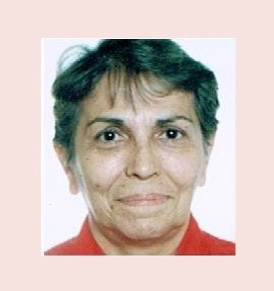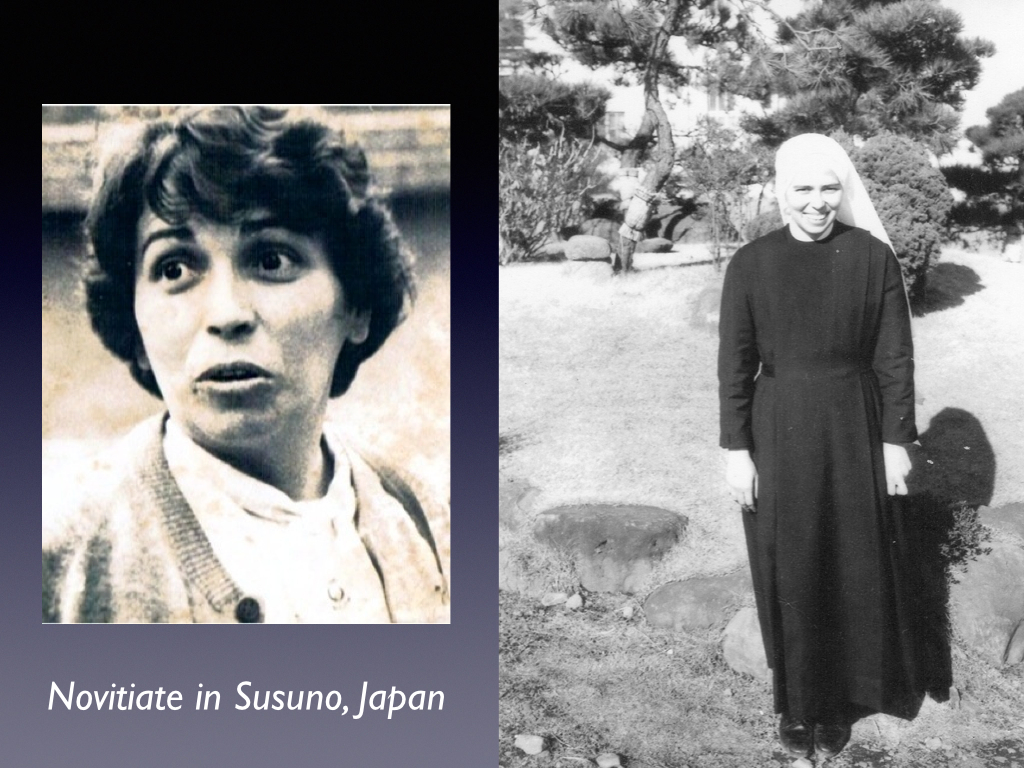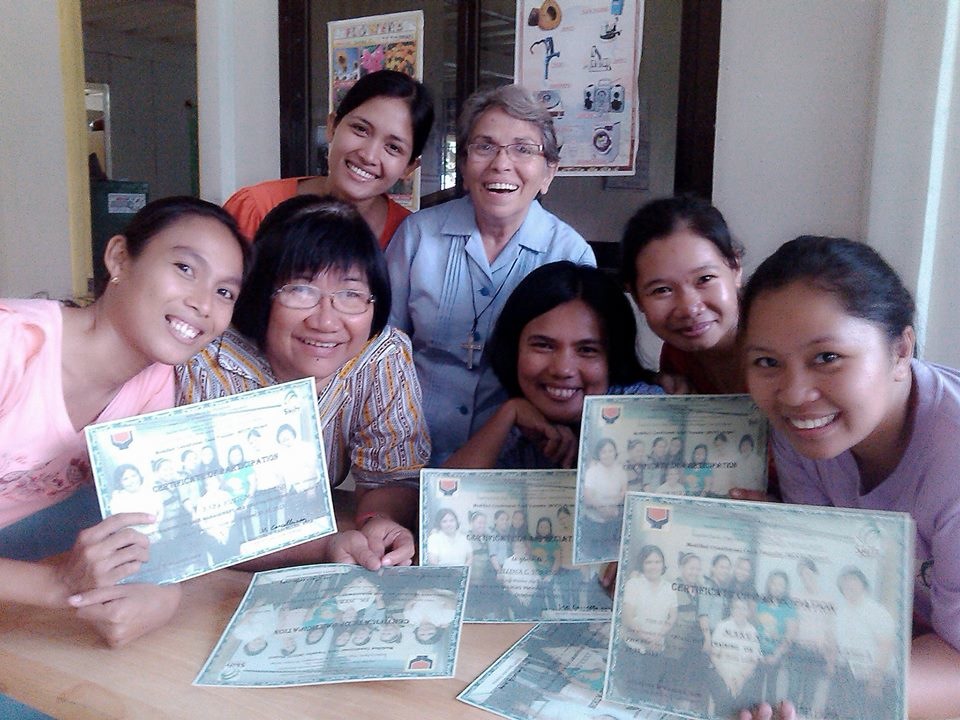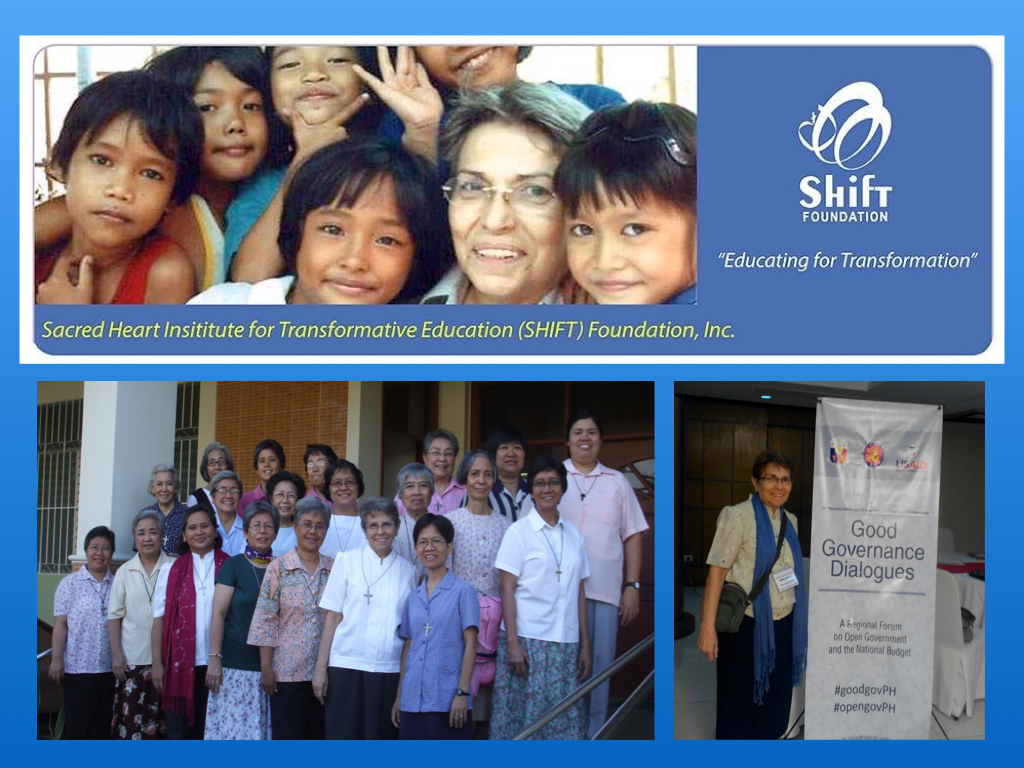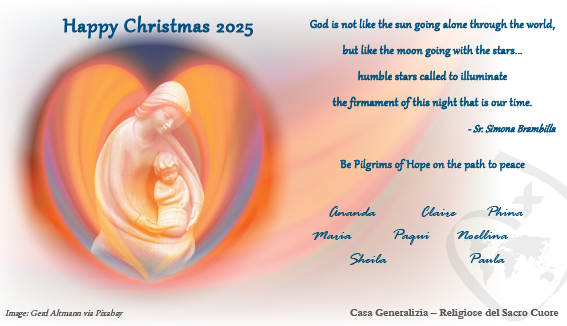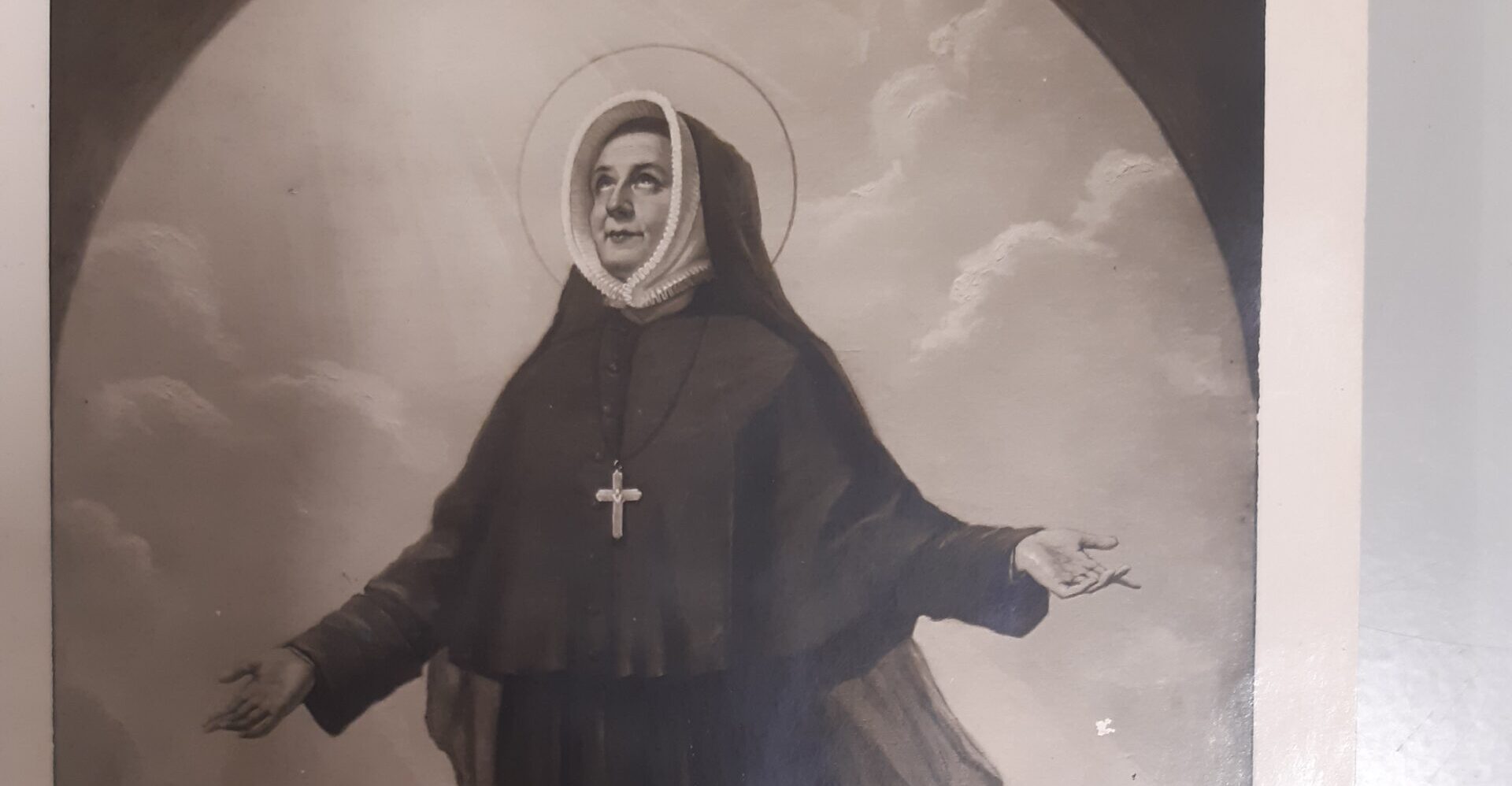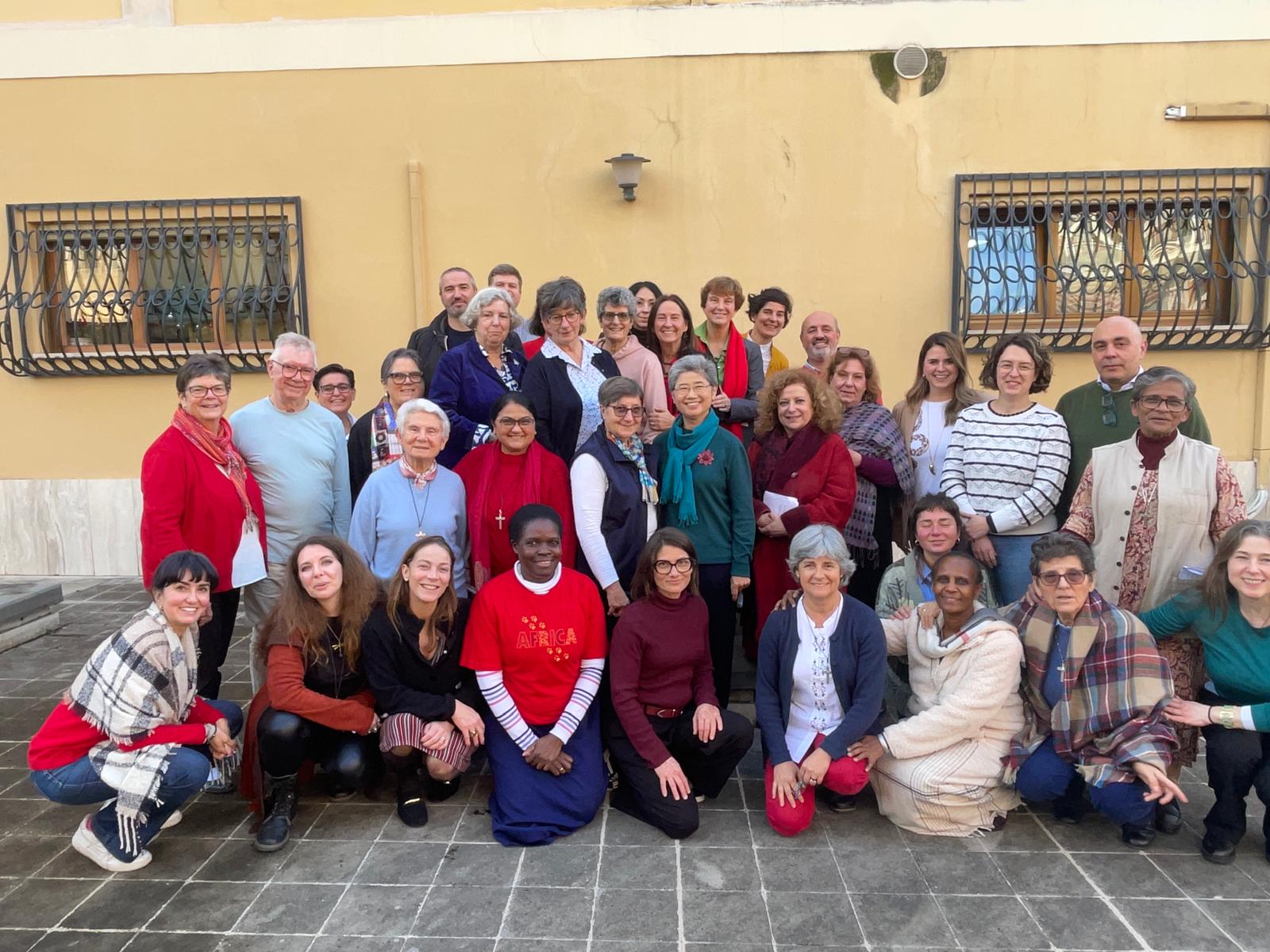I guess, from the very start of wanting to become a religious sister, was the desire to be a missionary. I vividly remember that intimate moment when I received my first holy communion and with my heart burning saying to Jesus whom I had just received, that I would give myself entirely to him and be a missionary beyond the boundaries of my country in faraway distant lands. Later that far away land I identified as Africa. I was going to go, love and serve in Africa! Yes, that is how Jesus lured me. I even took up a five year course in college, to have a Bachelor in Science degree that would prepare me to both teach and practice Nursing. From there, after refusing a serious marriage proposal, I set out to look for a congregation that would surely send me outside the Philippines. The Society of the Sacred Heart was the perfect match. It was an international congregation, it was not established in the Philippine BUT had several houses already in Africa. The Jesuit priest who introduced me to the Society made me read the history of the Society; then the lives of Madeleine Sophie and Philippine Duchesne. I instantly fell in love with their lives and their spirituality and so off I went to Japan where they had the international novitiate for the Far Eastern Province.
There I met Sister Bridgid Keogh who was the Provincial Superior then and became a key figure in the early formative days of my religious life. Even if the letter introducing me to her had not reached her, she welcomed me warmly when I arrived at 2:00 o’clock in the morning of May 25, 1965, the feast day of Saint Madeleine Sophie.
I was eager to meet with her privately the next morning to let her know I had chosen to enter this congregation because I wanted to be a missionary and be sent to Africa. Her response confounded and confused me. She smiled and said, “When you enter religious life you do so without any conditions. It is as if you are giving God a blank check.” Then she smiled again assuming that I had understood the consequences of what she had just said. I could not believe what I had just heard. She then told me to hurry up as we were going to have the reunion for the feast with the Sacred Heart Alumnae and with Princess Michiko (now the Empress) in attendance! I don’t remember much about that morning as my head was not quite focused.
My real discernment to give God a blank check then began and ended with my unconditional “yes.’’ After some years and studies I was sent to the Philippines with our Superior General saying, “This is your Africa. I promise you it will be as challenging and demanding as you had imagined it would be in Africa.“ This was 1970 when the Philippines was nearing being placed under Martial Law by the dictator Ferdinand Marcos which he did in 1972.
It was also post-Vatican II time when we were challenged to live our option to be in solidarity with the poor. I joined a small community of five young Filipino RSCJ, living in a rented apartment, teaching and ministering to poor students struggling to have a college education. In such a setting it seemed natural not to wear the habit…. Unlike the five other RSCJ, I worked for the Dept of Social Welfare and Development as a rehabilitation counsellor and social welfare specialist. I was part of a team to establish four vocational rehabilitation and training centers nationwide. In my daily interactions with the blind, the deaf, the lame, negative hansenites, and other persons with disabilities, I felt blessed to be among those “little ones”belonging to the kingdom of God.
In 1975, the RSCJ in the Philippines thought it was time to move from being an “experimental community” to putting down roots as a congregation in the country. Among the decisions we made was to accept someone among us to be our local coordinator. The group named me for this role, and among my responsibilities were to carry out other decisions of the group, which were: to buy property with a house that would become our center, and to start accepting vocations and hence, the need to begin initial formation in the country
It was also about this time that the community had started joining rallies against Martial Law. We were involved in political education of the religious sector through the Justice and Peace Commission of the Association of Major Religious Superiors. We joined the newly formed Task Force Detainees that followed up political prisoners and documented human rights violations. “It was the worst of times; it was the best of times.”
In 1983, the leader of the opposition to Marcos, Niinoy Aquino, was assassinated. The “yellow revolution” began and swelled in ranks. We joined street rallies, and the momentum of protest reached its climax in the four-day peaceful People Power Revolution in February 1986. Perhaps the most memorable experience for me was being one of three RSCJ, the only religious sisters, who got ourselves inside Camp Aguinaldo where the breakaway soldiers stationed themselves, and to hold vigil with them that historical night.
After we had won back our civil liberties and Cory Aquino was swept into the presidency, the Philippine RSCJ responded to the need for rural development and began a community in Northern Samar, then the third poorest province in the country, suffering from recurrent typhoons, centuries of government neglect, hunger and underdevelopment, and the resulting insurgency. If Northern Samar would not be my Africa, it would at least be my Philippine Duchesne experience.
I joined the Samar Mission in 1991 and for the next ten years, continued the organizing of Basic Ecclesial Communities for the Diocese of Catarman. After learning much from this experience, I headed the Diocesan Political Education Desk and supervised the three Diocesan Social Action Commissions of the three Dioceses of the Island of Samar. There were issues of ideological differences, illegal logging, mining, human rights violation and environmental destruction.
With the inspiration of Chapter 2000’s call for an education that transforms in the spirit of reciprocity, the community took a definitive step in committing ourselves to the people of Northern Samar. We settled into a piece of property which we called Sophie’s Farm and established the SHIFT Foundation (Sacred Heart Institute for Transformative Education). We continued our presence in youth ministry especially at the University of Eastern Philippines, the management of St. Anthony Academy, the diocesan mission school for poor students, and the running of the Sacred Heart Learning Center for pre-school children. I became executive director of the foundation, and explored ways of contributing to projects in pursuit of the millennium development goals: partnering with the ILO for the elimination of child labor in Northern Samar; with the Dept. of Social Welfare and Development on conditional cash transfers for families in poverty; with the National Anti- Poverty Commission in monitoring pro-poor projects. One JPIC concern that I have become passionate about is advocacy for food security through organic farming, and we have developed a demonstration and training for organic farm at Sophie’s Farm. This has led me to a driving interest in creation spirituality which I integrate with Sacred Heart spirituality.
There is no end to the adventure of searching with God’s people the ways of “The Good News of the Kingdom” (the name of my Probation). In my youth, going to Africa was a symbol for me of total self-gift. I am grateful that the Society has led me to different “Africas” and has helped me fulfil my heart’s desires.
Section |Profiles
Province |Philippines
